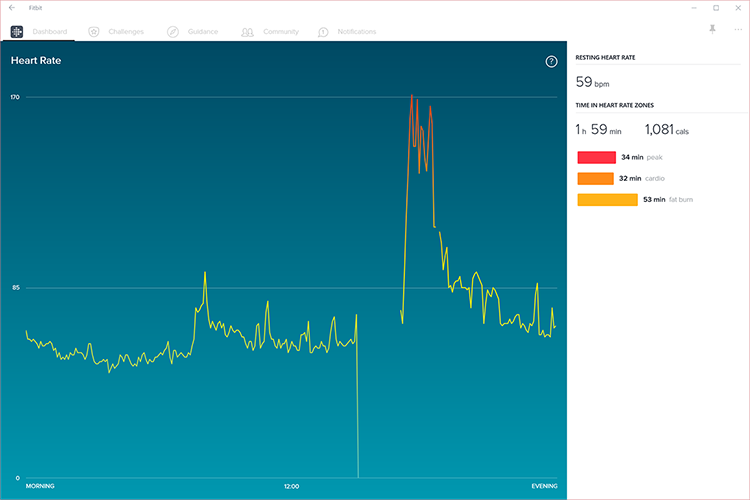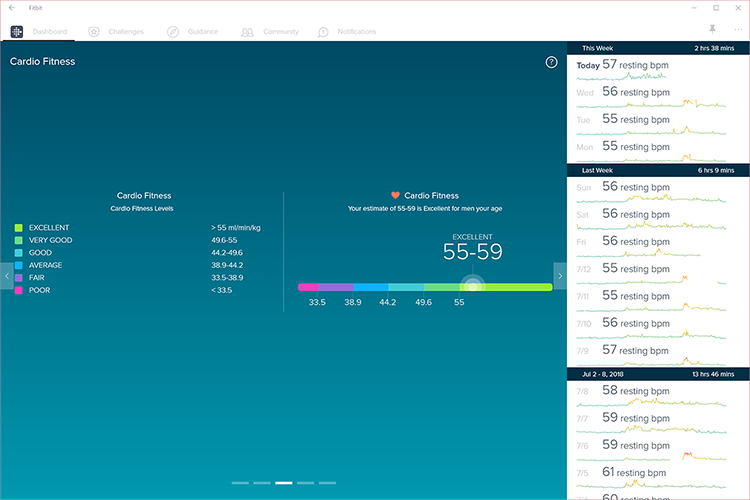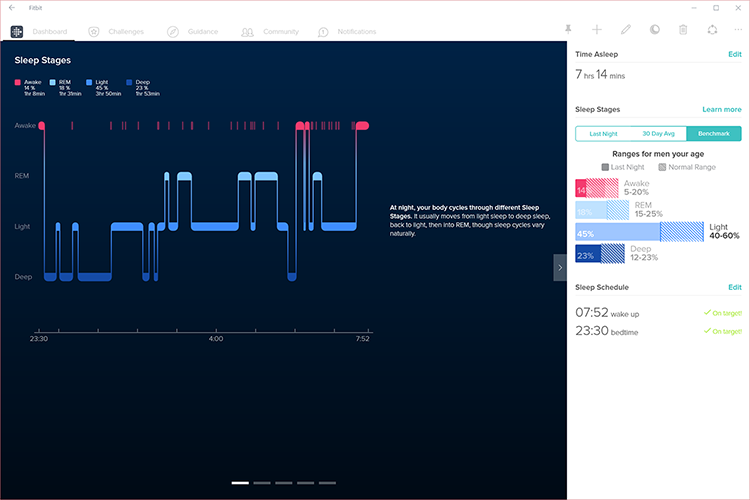Gathering Data
Considering the amount of data collected, Fitbit obviously isn't going to appeal to those who are strict about their privacy. On the other hand, if you enjoy having lots of numbers to help gauge your health and fitness, Charge 2 presents a good amount of information in an easy-to-digest format.
Some readers will associate Fitbit with step-counting, yet while that's still the primary function, the firm's latest trackers have seen new features introduced courtesy of hardware and software updates. One such example is Breathe, a guided breathing exercise that uses your heart rate to determine a comfortable breathing rate. The exercise can run for two or five minutes, with both on-screen and vibration feedback letting you know when to inhale and when to exhale. It's a simple tool, yet an effective means of lowering heart rate after exercise.
On the subject of heart rate, Charge 2 generally offers 24/7 monitoring, though we did notice the occasional blip, where a reading may dip, spike, or appear intermittent, as pictured above. This apparently isn't a rare occurrence - friends with far dearer Garmin watches confirm similar anomalies - but if you want to start using heart rate as a means to maximise a workout, Charge 2 is up to the task.
One criticism is that the apps don't offer as granular a view of the data as the Fitbit website, and more needs to be done to explain certain metrics. The Windows app, for example, tells me my 'Cardio Fitness' estimate of 55-59 is excellent for men of my age, but how does it derive such a number and what does it mean? There's little information within the app itself, and the only guidance available is from the help icon, which launches relevant help articles on fitbit.com.
Turns out Cardio Fitness is Fitbit's equivalent of VO2 max, which essentially measures how your body consumes oxygen when working out. How does Charge 2 calculate such a thing without a mask strapped to your face? Good question. We're told the Cardio Fitness score is determined by resting heart rate, age, sex, weight, and the relationship between pace and heart rate during GPS-connected runs. I'm not convinced by the method, and the fact that it rates me as excellent only raises my doubts, yet while other devices may give you a different reading, Charge 2 is generally consistent within itself.
Using current technology, there's only so much a small wristband can do, and Fitbit is well aware of the limitations. The manufacturer states that sleep stages are traditionally measured in a lab using an electroencephalogram to detect brain activity along with other systems to monitor eye and muscle activity. Hoping to offer something similar, Charge 2 attempts to measure sleep stages using merely your movement and heart-rate patterns.
The resulting data isn't going to be perfect, and I've found that Charge 2 will sometimes think I'm asleep if I'm just reading a book, yet give it time to build a broader picture and you do get some useful data to work with. My peak heart rate is higher than I'd like when working out, I rarely achieve eight hours of sleep, and I could certainly do with taking more steps during working hours. Did I need a Fitbit to tell me that? Probably not, but it has certainly helped raise my awareness.





